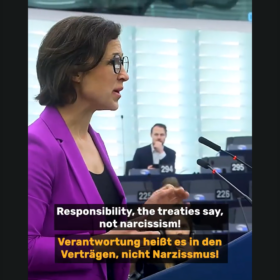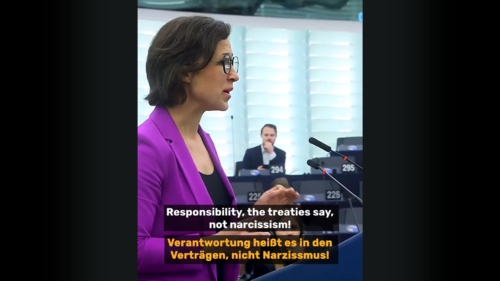Today, the European Parliament dealt with the environmental disaster in the Oder river. I had requested this debate – after all, during my summer trip this year, I experienced the mass fish die-off up close (link in German).
Therefore, in my speech in plenary, I called for an about-face in dealing with the Oder.
This summer we had to see how countless fish, mussels and molluscs perished in the Oder. The sight and smell of the dead fish have stayed with me for a long time. We are lucky that the Szczecin Lagoon and the Baltic Sea coast have been spared for the time being. According to scientists, however, the ecosystem of the Oder has been severely damaged for many years to come, in particular because a big part of the mussels which normally function as a natural cleaning filter for the river have died off.
In view of this man-made ecological catastrophe, we must now do everything we can so the the Oder river can recover and also adapt to the consequences of climate change. However, this is only possible if a number of conditions are met: The industrial discharge quotas must be drastically reduced, compliance with the European Water Framework Directive should become a top priority and a transparent cross-border monitoring system must be installed. In future, this system would then not only warn of increased temperatures, but also of deviating salt levels. We need to know something is wrong before it’s too late and animals and plants are dying.
The works on the Oder will not make it more flood-proof
Extreme weather events such as periods of drought and low water levels will increase in future as a result of climate change. The Oder is therefore not suitable as a reliable transport route – the fact that it is not navigable for several months of the year should be proof enough. Politicians must take this into account: the German-Polish government agreement on the expansion of the Oder from 2015 must be reviewed. In particular, there should be an analysis on whether an expansion of rail connections would not be significantly more environmentally friendly and cheaper. Contrary to a widespread myth, the expansion of the Oder river does not protect against flooding – the opposite is true, and therefore construction works must be stopped immediately. The EU should also critically examine its use of funds for these so-called flood protection measures, so that it does not support projects that achieve the opposite of what they were requested for.
You are currently viewing a placeholder content from Youtube. To access the actual content, click the button below. Please note that doing so will share data with third-party providers.
More Information











